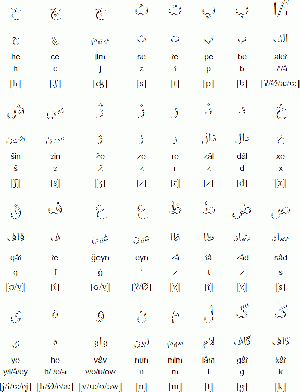Language/Lingala/Pronunciation/Alphabet-and-Pronunciation
Lingala is a Bantu language spoken throughout the northwestern part of the Democratic Republic of the Congo and a large part of the Republic of the Congo.
In today's lesson, we will study the Alphabet and the pronunciation of each letter.
Alphabet
| Letter |
|---|
Phonology
Vowels
| Front | Back | |
|---|---|---|
| Close | i | u |
| Close-mid | e | o |
| Open-mid | ɛ | ɔ |
| Open | a |
| IPA | Example (IPA) | Example (written) | Meaning | Notes |
|---|---|---|---|---|
| i | /lilála/ | lilála | orange | |
| u | /kulutu/ | kulútu | elder | |
| e | /eloᵑɡi/ | elongi | face | |
| o | /mobáli/ | mobáli | boy | pronounced slightly higher than the cardinal o,
realized as [o̝] |
| ɛ | /lɛlɔ́/ | lɛlɔ́ | today | |
| ɔ | /ᵐbɔ́ᵑɡɔ/ | mbɔ́ngɔ | money | |
| a | /áwa/ | áwa | here |
Vowel harmony
Lingala words show vowel harmony to some extent. The close-mid vowels /e/ and /o/ normally do not mix with the open-mid vowels /ɛ/ and /ɔ/ in words. For example, the words ndɔbɔ 'fishhook' and ndobo 'mouse trap' are found, but not *ndɔbo or *ndobɔ.
Vowel shift
The Lingala spoken in Kinshasa shows a vowel shift from /ɔ/ to /o/, leading to the absence of the phoneme /ɔ/ in favor of /o/. The same occurs with /ɛ/ and /e/, leading to just /e/. So in Kinshasa, a native speaker will say mbóte as /ᵐbóte/, compared to the more traditional pronunciation of /ᵐbɔ́tɛ/.
Consonants
| Labial | Alveolar | Post-
alveolar |
Palatal | Velar | |||||
|---|---|---|---|---|---|---|---|---|---|
| Nasal | m | n | ɲ | ||||||
| Stop | p | b | t | d | k | g | |||
| Pre-nasalized | ᵐp | ᵐb | ⁿt
ⁿs |
ⁿd
ⁿz |
ᵑk | ᵑg | |||
| Fricative | f | v | s | z | ʃ | (ʒ) | |||
| Approximant | w | l | j | ||||||
| IPA | Example (IPA) | Example (written) | Meaning |
|---|---|---|---|
| p | /napɛ́si/ | napɛ́sí | I give |
| ᵐp | /ᵐpɛᵐbɛ́ni/ | mpɛmbɛ́ni | near |
| b | /boliᵑɡo/ | bolingo | love |
| ᵐb | /ᵐbɛlí/ | mbɛlí | knife |
| t | /litéja/ | litéya | lesson |
| ⁿt | /ⁿtɔ́ᵑɡɔ́/ | ntɔ́ngó | dawn |
| d | /daidai/ | daidai | sticky |
| ⁿd | /ⁿdeko/ | ndeko | sibling, cousin, relative |
| k | /mokɔlɔ/ | mokɔlɔ | day |
| ᵑk | /ᵑkóló/ | nkóló | owner |
| ɡ | /ɡalamɛ́lɛ/ | galamɛ́lɛ | grammar |
| ᵑɡ | /ᵑɡáí/ | ngáí | me |
| m | /mamá/ | mamá | mother |
| n | /bojini/ | boyini | hate |
| ɲ | /ɲama/ | nyama | animal |
| f | /fɔtɔ́/ | fɔtɔ́ | photograph |
| v | /veló/ | veló | bicycle |
| s | /sɔ̂lɔ/ | sɔ̂lɔ | truly |
| ⁿs | /ɲɔ́ⁿsɔ/ | nyɔ́nsɔ | all |
| z | /zɛ́lɔ/ | zɛ́lɔ | sand |
| ⁿz (1) | /ⁿzáᵐbe/ | nzámbe | God |
| ʃ | /ʃakú/ | cakú or shakú | African grey parrot |
| l | /ɔ́lɔ/ | ɔ́lɔ | gold |
| j | /jé/ | yé | him; her (object pronoun) |
| w | /wápi/ | wápi | where |
Pronunciation: VIDEO
Lingala Online Virtual Keyboard
"

